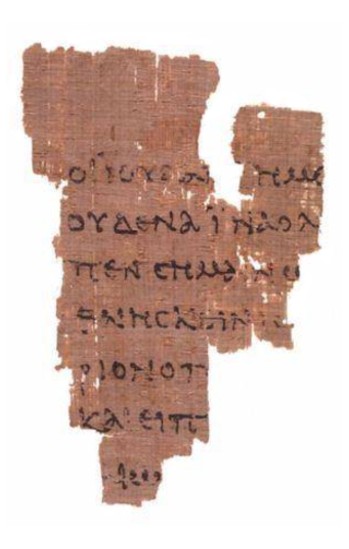Has the Bible Been Corrupted Over Time?
In a conversation with a Muslim friend, I asserted that a specific word is used in the New Testament a certain number of times. His response was a surprise to me. He was confident that I only had an English version of the Bible. I told him I was referring to the Greek New Testament. He was under the impression that we do not have access to the Greek New Testament.
This conversation has prompted this series of blog entries. I have heard this argument from other Muslims but never really grasped the actual claim. Some Muslims believe that the Greek Bible has been redacted by the King James Bible and lost to us. I am getting the impression that this misunderstanding is not an intentional one on the part of my friends. Muslims are literally taught that King James personally changed the Bible.
Muslims are not aware that Christianity has already debunked this view. In the 19th century, the theologian Ferdinand Baur at Tubingen University in Germany declared that the Gospels were concocted in the 2nd century to present a united first-century Church. In an increasingly naturalistic Europe, liberal theologians swarmed to this view and rejected the historical viability of the New Testament. This was supposedly the death of Christianity and by 1860 the New Testament was considered completely discredited. At this time the Tubingen school of thought was considered incontrovertible.
However, a new school of thought at Cambridge University came to re-affirm the traditional dates of the books of the New Testament by applying Baur’s own methods. The Times of London wrote about the “Cambridge School” saying
“instead of opposing a mere dogmatic opposition…they met them frankly on their own grounds, and instead of arguing that their conclusions ought not to be and could not be true, they simply proved that their facts and premises were wrong”.
The Cambridge School was then completely vindicated by the discovery of several Codices (Sinaiticus and Vaticanus, specifically), and numerous papyri of the New Testament, some dating into the beginning of the 2nd century. After an overwhelming influx of textual and archeological evidence, the Tubingen school suffered a public shaming where the Department heads finally had to publicly admit that they were drastically wrong.
|
More recently, the book turned movie The Davinci Code has re-purposed this same argument positing (without even an attempt at evidence) that the Bible was brought into being in the 4th century by the Emporer Constantine who decided what writings were to be part of the gospel and which other books (including gnostic gospels) were to be left out. The claim is that the beliefs of the early church and the words of Christ are, once again, redacted by a King – Constantine, in this case.
So, you can see why, since we are dealing with very reliable documents from the 2nd century that I am surprised (and even humored) to hear that anyone is suggesting the Bible was lost by King James in 1611. My goal is not to assert that the New Testament is inspired or inerrant but that it is a historically reliable representation of what the earliest Christians believed. We will be able to demonstrate that:
- We can be confident that the Greek New Testament has not changed from what was penned by the original authors.
- We can be assured that the contemporaries of the original authors received the plurality of the New Testament as the inspired word of God.
- History demonstrates that the earliest Christians held to exactly 4 gospels that we can identify as Matthew, Mark, Luke, and John.
- The process of canonization and the recognition of which books were inspired occurred extremely early.
|
 |
P (papyri) 52 is the name of a papyri fragment found in Egypt dating to the beginning of the 2nd century. It contains text from the modern book of John. Traditionally, John was written in Ephesus in the latter half of the 1st century some 800 miles away from where this piece of papyri was found. The fragment contains 2 sections of the book of John.
One is John 18:31-33.
|
|
31 Pilate said to them, “Take him yourselves and judge him by your own law.” The Jews said to him, “It is not lawful for us to put anyone to death.” 32 This was to fulfill the word that Jesus had spoken to show by what kind of death he was going to die.
John 18:31-32 ESV
|
Even this tiny fragment confirms that Jesus told his disciples how he was going to die. When a Muslim claims that Jesus did not die on the cross and that the New Testament we have (that says he did) is not the Injeel of the early Christians they do so in the face of evidence to the contrary. However, as we will see over coming posts, this one piece of evidence is only the tip of a very large iceberg. Next post, we will look at the textual evidence that does exist.
continue to part 2